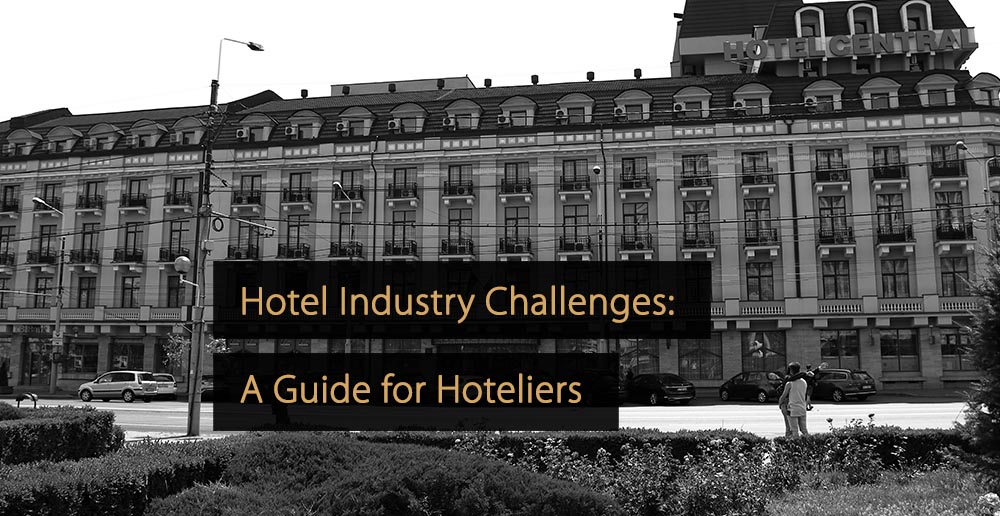Hospitality is a broad term, encompassing areas like accommodation, travel, tourism, and food and beverage services. Across these key areas, there are many different hospitality services, from hotels and restaurants, right through to theme parks, airlines, and bars. In this article, you will find an overview of hospitality and a complete breakdown of more than 50 hospitality services you should know.
Table of Contents:
- What is the Hospitality Industry?
- Main Sectors Within the Hospitality Industry
- 53 Examples of Hospitality Services
- Agritourism (farm visits)
- Airlines
- Amusement Parks
- Bars & Taverns
- Bed & Breakfast
- Bowling Alleys
- Cabins & Cottages
- Cafes
- Cafeterias & Canteens
- Camping / Glamping
- Casino Hotels
- Catering
- Circuses
- Concerts
- Conferences
- Coworking Spaces
- Cruises
- Cultural Attractions
- Day Rooms
- Destination Restaurants
- Event Venues
- Events
- Golf Clubs
- Hospitals
- Hostels
- Hotels
- Inns
- Internet Cafes
- Karaoke
- Laundry Cafes
- Member’s Clubs
- Motels
- Movie Theaters
- Museums
- Music Clubs
- Nightclubs
- Pool Halls
- Railroads
- Recording Studios
- Recreational Facilities
- Resorts
- Restaurants
- Ski Resorts
- Space Travel
- Spas
- Tearooms
- Theatrical Performances
- Theme Parks
- Tourist Attractions
- Tours
- Vacation Rentals
- Water Parks
- Zoos
- The Essentials of Hospitality Management
- Key Hospitality Technology Trends
- The Latest Hospitality Industry Trends
What is the Hospitality Industry?
Before exploring hospitality services, it is good to define the hospitality industry. A simple definition of the hospitality industry is that it is a sub-section of the service industry, focused on the reception of guests and the provision of pleasant experiences. It is mainly based on ideas of leisure, comfort, and customer satisfaction.
In the “Hospitality Industry: The Number One Hospitality Information Guide!” article, you can improve your understanding of the hospitality industry and how it differs from the travel industry.
What Are Hospitality Services?
Hospitality services are the services offered in the hospitality sector, including accommodation, restaurants, entertainment venues, and travel businesses. More specifically, they are services based around receiving guests and providing them with comfort, enjoyment, and/or a pleasant experience.
In many cases, hospitality services also focus on personalization and accommodating the specific needs of individual customers. This could take the form of providing personalized guest services or personalized dining experiences, for example. Ultimately, hospitality services aim to meet and exceed customer expectations.
Main Sectors Within the Hospitality Industry
It may seem difficult to pinpoint a precise and concise hospitality meaning or definition, but most hospitality services fall within three broad categories, which are as follows:
1. Food and Beverages
Food and beverage services is the section of hospitality services geared towards selling meals, snacks, sweets, and drinks. This includes both alcoholic and non-alcoholic drinks, and services intended for both on-site and off-site consumption. Within this sub-section are specific fields, such as restaurant management and catering. F&B services may also be offered within other businesses, like hotels and visitor attractions.
2. Accommodation
Accommodation-based hospitality services are centered around the provision of overnight stays for guests. There is a wide range of business types that fall within this category, including hotels, resorts, vacation rentals and hostels. Accommodation businesses also often target their offerings towards different demographics, including leisure travelers, families, business travelers, backpackers, and wellness travelers.
3. Travel and Tourism
Finally, the travel and tourism sub-section of hospitality services covers areas like transportation, visitor attractions, and entertainment. For instance, cruises and casinos would both fit into this area. Also in this section would be attractions like theme parks and amusement parks, and services like guided tours and bus tours.
53 Examples of Hospitality Services
In the sections that follow, you can learn about more than 50 specific hospitality services:
1. Agritourism
Agritourism is a portmanteau of the words “agriculture” and “tourism“. It refers to hospitality services offered on farms or ranches. Farm stays, where guests stay overnight at a farm, are the most common form of agritourism. There is often an educational component, with guests learning about farming, or participating in relevant activities.
2. Airlines
Airlines provide air transportation services, most commonly in the form of commercial airplane flights. However, in addition to this primary function, airlines also often provide on-flight meals, entertainment, and other hospitality services. A significant part of the airline industry involves keeping customers comfortable and safe.
3. Amusement Parks
Amusement parks are commercially-operated parks, offering entertainment like rides, attractions, games, and performances. They are designed to provide customers with an enjoyable day out and are often aimed at families. Aside from the entertainment, amusement parks usually offer food, drinks, and similar hospitality services.
4. Bars and Taverns
A bar is a business that sells beverages, focusing on alcoholic drinks. Bars allow customers to sit in while they enjoy their drinks, while other hospitality services could also be provided, including food and entertainment. Taverns and pubs are specific types of bars that offer both food and drink services.
5. Bed & Breakfasts
Bed & breakfasts, or B&Bs, are relatively small establishments that offer guests lodgings. As the name suggests, guests tend to pay for the combined hospitality services of overnight stays and breakfast in the morning. A B&B will typically have far fewer rooms than a hotel. Bathrooms can be either shared or en suite.
6. Bowling Alleys
A bowling alley is a business that provides the facilities for customers to play bowling. The bowling alley usually includes multiple lanes and provides bowling balls and shoes. In addition to the entertainment component, bowling alleys often offer extra hospitality services, like meals, snacks, drinks, and arcade games.
7. Cabins and Cottages
Cabins and cottages are relatively small properties that, when used to provide hospitality services, are a form of guest accommodation. Guests typically pay for access to the accommodation itself and make their own arrangements for food and entertainment. Cabins are usually smaller than cottages, often made from wood, and have a more simplistic design. Both cottages and cabins are often found in remote or rural areas.
8. Cafes and Coffeehouses
One of the most obvious examples of a business offering food and beverage-related hospitality services, cafes are small, informal establishments, which function similarly to restaurants. However, cafes typically place a stronger emphasis on drinks like tea and coffee, while the food menu is usually focused on light snacks or small meals.
9. Cafeterias and Canteens
Cafeterias, also known as canteens in many parts of the world, are food service locations in the hospitality sector, usually using food serving counters. These counters may or may not be self-service. Diners can sit and eat food at their table, but there will not usually be dedicated waiting staff.
10. Camping and Glamping
Camping and glamping hospitality services most commonly consist of dedicated campsites, where customers can set up their own tent, use a provided tent, and access nearby amenities, like water. The word “glamping” refers to “glamorous camping“, where there are more luxurious services and amenities not present in traditional camping. Glamping sites will also usually provide higher-quality accommodation than a basic tent.
GLAMPING vs CAMPING: 7 Things You Should Know
11. Casino Hotels
Casino hotels are casinos that offer overnight accommodation and other hospitality services typical for the hotel industry. The casino serves as a primary form of entertainment for most guests during their stay, but guests will also have their own room, and they may also have access to room service, a hotel restaurant, and more.
12. Catering
Catering can be broadly defined as the provision of food-related hospitality services at a remote location. The primary difference between catering and those in the restaurant industry is that catering businesses prepare food in advance, take it to another location, and then serve it. Some final preparation steps may occur on-site.
13. Circuses
A circus is a traveling entertainment group, which puts on performances for visitors. Performances are often held in a large tent or a similar structure, and they may include acrobatics, comedy, music, and the use of trained animals.
14. Concerts
Concerts are musical performances, held at an entertainment venue. They can vary in scale, from small-scale concerts held in tiny venues, right the way through to large concerts held in huge arenas or stadiums. Most of these venues will offer additional hospitality services, such as food and drinks.
15. Conferences
Conferences or conventions are meetings of people who have the same shared interest. Business conferences, for example, allow people working in the same industry to gather, share ideas, and generate new contacts. There are also recreational conferences, with San Diego Comic-Con serving as a good example.
16. Coworking Spaces
Coworking spaces are shared workspaces, where the space is shared by workers from multiple employers, as well as by self-employed individuals. Coworking spaces can allow employers to save money on office space and allow workers to collaborate or access necessary technology. Some spaces offer refreshments and other hospitality services.
17. Cruises
A cruise is a journey that is taken for pleasure purposes, aboard a cruise ship. Cruises will typically provide guests with a cabin, suite or room, complete with a bed. The cruise ship will also offer various hospitality services, including food, drinks, and entertainment, while guests may be able to get out and explore once they reach the destination.
Wonder of the Seas Cruise Ship Tour 4K
18. Cultural Attractions
A cultural attraction is an attraction that provides visitors with a sense of a region’s culture, history, values, beliefs, or features. Examples of this would include temple stays, places of worship, holy sites, architectural sites, historic places of interest, historic landmarks, and museums.
19. Day Rooms (hotels)
A day room within a hotel is a room that can be booked for short-term use during the day. Customers may book a day room for short-term rest and recuperation, or for work-related purposes. Booking a day room can also provide access to other hospitality services on offer within the hotel. Day room bookings last for an agreed number of hours.
20. Destination Restaurants
The best way to think of destination restaurants is as appealing enough to attract interest from people outside the ordinary area where people may visit. For example, a Michelin-star restaurant may be worth traveling out of your way for, because the food quality is so good.
21. Event Venues
As the name suggests, event venues are venues where conferences, parties, performances, and other events can be held. Examples of event venues may include conference halls, convention centers, hotels, concert halls, community centers, and more. Often, various hospitality services will be on offer within the venue, too.
22. Events
Events can be considered a fairly broad category within hospitality services, covering everything from trade shows and hotel conferences, to fundraisers, parties, and award ceremonies. Events are often catered.
23. Golf Clubs
Golf clubs are organizations that provide members with access to golfing facilities, such as equipment and a golf course. Some golf clubs are strictly members only, while others provide paid access to travelers and other one-time guests.
24. Hospitals
Hospitals are one of the biggest examples of hospitality services, because they are focused purely on meeting visitors’ needs. These institutions provide medical care for the injured and unwell, including emergency treatments. Depending on the nature of treatment needed, patients may need to stay overnight.
25. Hostels
Popular among backpackers, gap year travelers, and students, hostels are a low-cost form of accommodation, where guests rent a bed. Many of the facilities, such as the lounge, bathroom, and kitchen, are shared between guests. Sleeping arrangements can often include bunk beds, to maximize the use of space.
26. Hotels
Hotels are one of the best-known types of guest accommodation. Guests pay for a room, usually including a bed, an en-suite bathroom, and other facilities. A full range of hospitality services will usually be on offer, including room service, a hotel restaurant, on-site entertainment, and leisure facilities.
27. Inns
An inn is an establishment where guests can pay for accommodation, as well as food and drinks. Inns are similar to pubs and taverns, but their hospitality services mostly cater to travelers. This accommodation type is most commonly found in the countryside, or along major travel routes.
28. Internet Cafes
Predominantly used by travelers, internet cafes provide customers with paid access to computers with online capabilities. These businesses are typically used to allow travelers to communicate with people online. In many cases, refreshments and other basic hospitality services may also be available.
29. Karaoke
Karaoke bars originate from Japan and are especially popular throughout Asia, while gaining increasing popularity in other parts of the world. These establishments provide visitors with access to karaoke equipment, entertaining by allowing customers to sing along to recorded tracks using a microphone. Karaoke bars usually also sell alcohol and may also provide a variety of additional hospitality services.
30. Laundry Cafes
A laundry cafe combines the hospitality services typically provided by a laundromat or launderette and a cafe or bar. In addition to accessing coin-operated self-service machines for washing and drying clothes, customers can access light refreshments, including drinks and snacks.
31. Members’ Clubs
Members’ clubs are exclusive clubs that offer hospitality services to paid members. These services will include social spaces, drinks, food, and entertainment. An upmarket version of this may be called a gentlemen’s club.
32. Motels
The word “motel” is a portmanteau of the words “motor” and “hotel“. Motels are a form of guest accommodation, geared towards motorists. They usually provide rooms, similar to a hotel, which may be accessible from the parking area, without going through a reception. Additional hospitality services are usually more limited than in a hotel.
33. Movie Theaters
Movie theaters or cinemas are establishments where movies are shown to paying customers. The movies are typically displayed on a large screen, while the customers sit and watch in an auditorium. Most movie theaters also sell food and drinks, including soft drinks, popcorn, hotdogs, and other snacks.
34. Museums
A museum is a building that displays artifacts of cultural importance or value. These objects are often based around a shared theme, such as natural history, science, local history, transportation and the arts. Many museums are popular tourist attractions, with vast collections to showcase.
35. Music Clubs
Music clubs offer hospitality services comparable to nightclubs and bars, but with an emphasis on live music performance. Popular examples of music clubs include jazz clubs and rock clubs. They usually sell alcoholic drinks. Some offer open mic nights, where customers can get up and perform.
36. Nightclubs
A nightclub is a location where customers go to drink alcohol, dance, and listen to music. The basic premise is similar to a bar, although there is a greater emphasis on loud music and dancing. Nightclubs are also usually open until the early hours of the morning. Some provide extra hospitality services, and there may also be a strict dress code.
37. Pool Halls
Pool halls, billiard halls and snooker halls are locations where visitors can play these sports. They will provide pool, snooker, or billiard tables, and other equipment, such as cues. Most pool halls also have other hospitality services on offer, including alcohol, soft drinks, and other entertainment options.
38. Railroads
Railroads are home to a number of interesting hospitality services, including sleeper car accommodation that allows guests to stay in relative comfort while aboard a train. These types of accommodation can be especially useful for long-distance journeys and provide access to a bed, food, drinks, and other facilities.
39. Recording Studios
Recording studios are facilities designed for the recording of audio content. Some recording studios are primarily designed to record songs and musical performances, while others can record podcasts, audiobooks, radio broadcasts, and similar audio projects. Studios typically provide recording equipment and excellent acoustics.
40. Recreational Facilities
Recreational facilities is a broad term used to describe various facilities and hospitality services, ranging from gyms, tennis courts, and adventure playgrounds to saunas, swimming pools and spas.
41. Resorts
Resorts are a form of large-scale accommodation, similar to a large hotel. However, the approach is the primary difference between a hotel and a resort. Hotels facilitate travel and exploration of the local area, whereas resorts are designed to provide all necessary facilities, hospitality services, shops, and entertainment on-site.
42. Restaurants
Restaurants are businesses that specialize in preparing food and drinks for customers to consume on-site. However, some restaurants also offer takeaway services. There are many different types of restaurants, including fine dining restaurants, fast food restaurants, and buffet restaurants.
43. Ski Resorts
A ski resort is a self-contained location that can be used as a base while participating in skiing and other winter sports. They share many additional hospitality services associated with other resorts and large hotels, but the main entertainment and activities are centered around skiing.
44. Space Travel
One of the key emerging hospitality services is space travel, which is connected to the idea of space tourism. A growing number of companies are offering flights into low earth orbit, allowing tourists to experience the sights and sensations of space travel. Several businesses also have plans to establish space hotels.
45. Spas
A spa is a hotel, resort, or facility that offers health and beauty treatments, including mineral baths, saunas, and massages. The primary focus is on wellbeing and relaxation, but other services may also be on offer.
46. Tearooms
Tearooms are similar to cafes or very small-scale restaurants. The main focus, in terms of hospitality services, is providing tea and similar hot drinks. Other offerings might include light snacks, like cakes.
47. Theatrical Performances
Theatrical performances is another broad term, which describes any performance that takes place in a theater-style setting. This includes stage shows, musicals, comedy performances, and similar types of entertainment.
48. Theme Parks
Theme Parks are similar to amusement parks, but the rides and attractions are based around a shared theme. For example, Magic Kingdom at the Walt Disney World Resort is an example of a theme park, with the shared theme being Disney characters and fairy tales. Visitors can expect rides, entertainment, and hospitality services, like food and drinks.
49. Tourist Attractions
Tourist attractions form a core part of the travel and tourism industry. These can be described as attractions that may encourage a traveler to visit a specific location. Some tourist attractions are free to visit, while others are paid attractions. The level of hospitality services on offer will naturally vary.
50. Tours
Tours provide a guided way to experience the major sights and attractions in a location. These can take different formats, from walking tours, to open-top bus tours. A tour guide will usually be on hand to provide contextual information and ensure participants see all of the key attractions included in the tour.
51. Vacation Rentals
Vacation rentals are houses, apartments, cottages or other similar properties rented out to travelers as temporary vacation accommodation. The hospitality services included as part of a vacation rental can vary substantially, but most are rented on the understanding that the guest will find their own food, drinks, and entertainment.
52. Water Parks
Water parks are a specific type of amusement park, focusing on swimming pools, water slides, wave pools, water rides, and other water-related attractions and features. Visitors will also have access to various hospitality services, including food, drinks, live entertainment, and games.
53. Zoos
Zoos are facilities usually accessible to the public, where animals are kept. Some zoos breed and care for animals in an effort to assist with animal conservation efforts. Generally, animals will be able to be viewed by visitors. Zoos may also offer food, drinks, gift shops, performances, and other hospitality services.
The Essentials of Hospitality Management
The provision of great hospitality services relies on effective management. So, what is hospitality management? How does it differ from hotel management? And what are the main responsibilities, the most important qualifications, and the different hospitality management jobs within the sector?
In the article “Hospitality Management: The Essentials About Hospitality“, you will find a detailed overview, which answers all of these questions and more, so you can learn about hospitality management.
Key Hospitality Technology Trends
The best hospitality services combine excellent attention to detail with the latest hospitality technology. Understanding technology trends in the sector can help boost efficiency and reduce staff workloads while enhancing the customer experience. Examples of tech trends include the rise of ChatGPT and the growing role of robotics.
In the article “The Latest Technology Trends in the Hospitality Industry“, you can read about these technology trends and many others, so that your hospitality business delivers what customers are looking for.
The Latest Hospitality Industry Trends
To provide high-quality hospitality services, it is essential to know the major hospitality trends at any given time. This can include behavioral trends among customers, or social or cultural trends. Keeping pace with all of these trends can help businesses to live up to customer expectations.
In the article “Hospitality Trends: The Latest Trends in the Hospitality Industry“, you will find much more information on the key trends impacting the sector in the months and years to come.
Hospitality Services FAQs
A wide range of hospitality services span the areas of accommodation, travel and tourism, and food and beverage services. Understanding this broad spectrum of services can help to contextualize just how vast the hospitality industry is, but also how the different components all link together.
More Tips to Grow Your Business
Revfine.com is the leading knowledge platform for the hospitality and travel industry. Professionals use our insights, strategies, and actionable tips to get inspired, optimize revenue, innovate processes, and improve customer experience.Explore expert advice on management, marketing, revenue management, operations, software, and technology in our dedicated Hotel, Hospitality, and Travel & Tourism categories.
This article is written by:
Hi, I am Martijn Barten, founder of Revfine.com. With 20 years of experience in the hospitality industry, I specialize in optimizing revenue by combining revenue management with marketing strategies. I have successfully developed, implemented, and managed revenue management and marketing strategies for individual properties and multi-property portfolios.










Leave A Comment